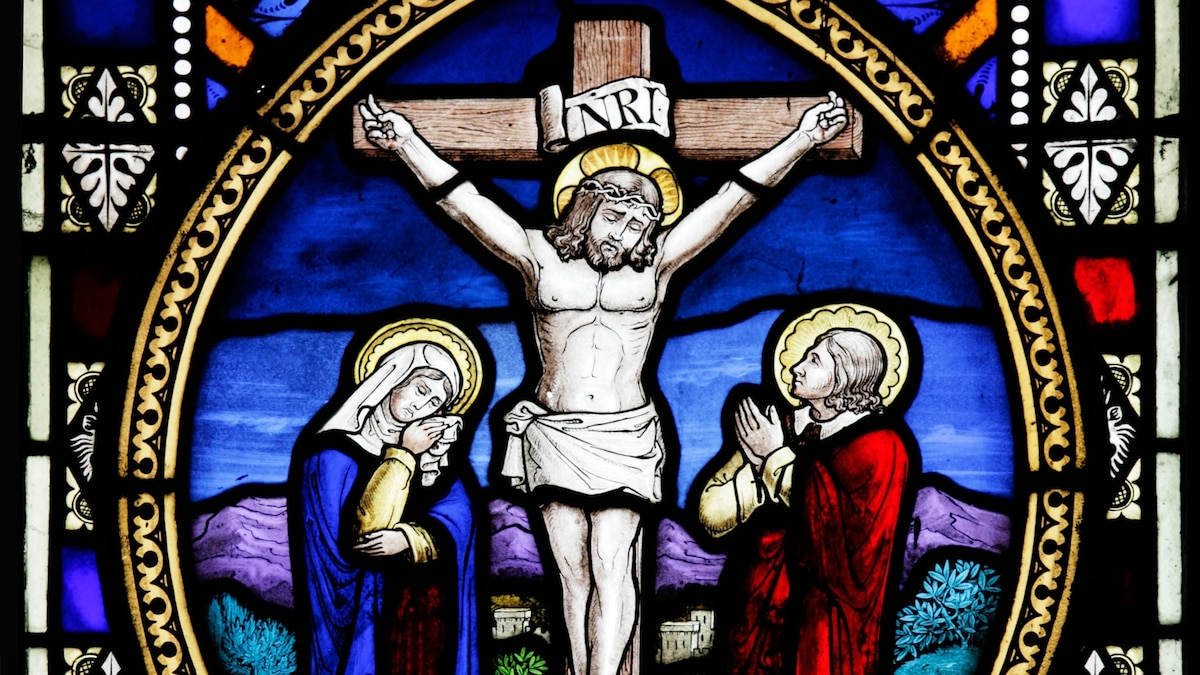Now Reading: What’s so ‘good’ about Good Friday? The history of a holiday rooted in grief
-
01
What’s so ‘good’ about Good Friday? The history of a holiday rooted in grief
What’s so ‘good’ about Good Friday? The history of a holiday rooted in grief

For billions of Christians, Good Friday remains one of the holiest days in the religious calendar. Commemorating the day Jesus died by crucifixion around A.D. 30., Good Friday is a crucial part of the Christian Holy Week, the series of holidays that culminates in Easter, when, according to Christian faith, Jesus returned to life after dying on the cross.
What’s the context behind Good Friday—and how do Christians observe it every year?
What is Good Friday?
Good Friday represents Jesus’ execution at the hands of the Romans. So why do Christians call the holiday “good”?
“‘Good’ in this instance means something like ‘holy’ or ‘pious.’ It is ‘good’ because it is ‘holy,’ not because we are supposed to think that crucifixion is a good thing,” explains Candida Moss, Edward Cadbury Professor of Theology at the University of Birmingham.
Religious scholars believe that Jesus of Nazareth—whom billions of Christians believe was the son of God—lived in the first century in what is today Israel. At the time, the Roman Empire controlled the region. Scholars have different interpretations about Jesus’ life, but they agree that he built on his Jewish faith to proselytize a religious vision that attracted a growing number of followers.
(What archaeology is telling us about the real Jesus.)
Historians also agree that around Passover, a significant Jewish holiday, Jesus was arrested and tried before Pontius Pilate, the Roman governor of the province. The Bible claims Pilate sentenced Jesus to death by crucifixion.
So why was Jesus killed? It’s possible that his rising profile made him a political target. At the time, Jewish religious leaders led popular protests that challenged hierarchies in Roman Judaea.
“Jesus was sentenced to die and executed at a very tense political and religious moment,” says Moss.
As Jesus spread his teachings, Jewish pilgrims gathered in the city of Jerusalem for the feast of Passover.
“This made the Roman authorities nervous,” Moss explains. “Passover celebrates liberation from slavery and oppression, and the Roman authorities didn’t want people taking inspiration and rising up against the Roman empire.”
Indeed, Pilate may have sentenced Jesus to execution for a political reason. According to Bart Ehrman, James A. Gray Distinguished Professor of Religious Studies at the University of North Carolina at Chapel Hill, Jesus was referred to as “King of the Jews.”
“Being King meant being the political leader of the people of Israel,” he wrote in his blog. “And only the Roman governor or someone the Romans appointed (like Herod) could be king. Anyone else who claimed to be king was usurping Roman prerogatives and was seen as a threat, or if not a threat, at least a public nuisance.”
You May Also Like
Jesus’ form of execution aligns with this. “Crucifixion was a form of execution that was practiced by the Romans and was used for enslaved people, bandits, and rebels,” Moss says. “It is likely that Pilate, fearing some kind of uprising, sentenced Jesus to die as a political subversive.”
(How did Jesus’ final days unfold? Scholars are still debating.)
When is Good Friday?
The actual dates of Good Friday change year to year—and that’s because the holiday always precedes Easter, which commemorates what Christians believe to be Jesus’ resurrection on the third day after his death. There isn’t a consensus on when this religious event happened or which calendar to use when calculating dates.
The authors of the Gospels—Matthew, Mark, Luke, and John, the men credited with writing the canonical texts that partly make up the New Testament—used the Jewish calendar, and they claimed that Jesus’ death happened in the month of Nisan, which corresponds to what is now March and April, when Passover typically falls. Yet, they don’t agree on whether it happened on 15th or 14th Nisan.
(Here are the two ancient empires shaped the Jewish holiday of Passover.)
Moreover, early Christian leaders failed to agree on when exactly to celebrate Easter, which impacted when Good Friday could be observed.
“Most Christian denominations use the ‘computus paschalis’ to determine the date of Easter,” Moss says. “Most years, Easter is the first Sunday following the first full moon after the spring equinox.”
But that this isn’t always the case for all Christians.
“The date of Easter is calculated differently in Orthodox Christianity than in other denominations, so many years it falls on a different date. The reason this is so complicated is because in the Bible and in Christian tradition, Jesus’ death is tied to Passover and the date of Passover is calculated using a lunisolar calculation,” Moss explains.
The significance of Good Friday for Christians
As a day marking the death of a religious figure, Good Friday is solemn—and so Christians observe the day, rather than celebrate it, by attending church services and, for Catholic Christians, observing Good Friday as a day of penance when they cannot eat meat.
Historically, some communities have marked Holy Week in general by staging passion plays, which recreated Jesus’ movements in the hours leading up to his death. Traditionally, these plays have emphasized violence and suffering.
Around the world, processions continue to be a symbolic way that communities observe Good Friday. In Guatemala, for instance, processions include black-clad mourners to set a melancholy tone for the holy day.
Though the meaning of Good Friday is relatively consistent throughout the Christian world, religious communities have unique traditions to reflect their culture.
“In Jamaica, there’s a practice of separating an egg yolk and white and pouring the egg yolk into a glass to learn about the future,” Moss says.
Good Friday traditions, from the mournful to the mystical, reflect the diversity of the Christian world and the ways worshippers resurrect, remember, and mark an event for which there remains more questions than answers.























